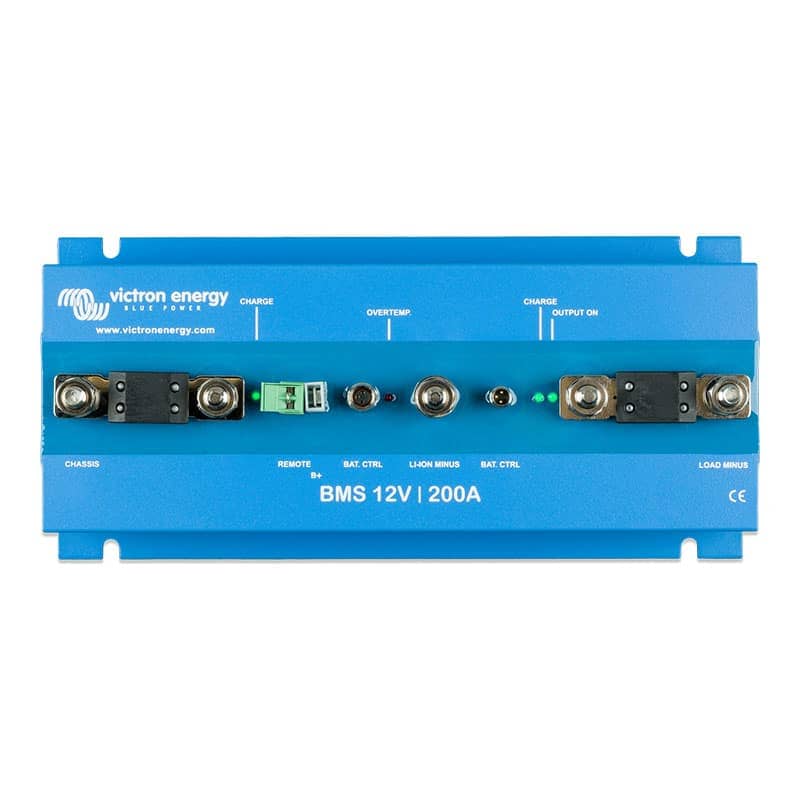Victron Smart BMS 12/200 BMS210055000
The Smart BMS 12/200 is an all-in-one Battery Management system for Victron Lithium-Iron-Phosphate (LiFePO4) Smart Batteries. It has been specifically designed for 12V systems with a 12V alternator such as in vehicles and boats.
It combines a Current Limiter, Battery Combiner and Battery Protector in a robust and compact solution and lets you safely connect any size 12V alternator (and starter battery), loads and chargers to Smart Lithium batteries.
The Smart BMS 12/200 monitors and protects each individual battery cell within the battery (or battery bank) and will disconnect the alternator, charge sources or DC loads in case of low battery cell voltage, high battery cell voltage or over temperature.
The dedicated alternator connection provides current limiting and one-way traffic from the alternator into the battery, this so any size alternator (and starter battery) can be safely connected to the Smart Lithium battery (or battery bank) and the starter battery is protected from excessive discharge.
The BMS is equipped with Bluetooth for monitoring and configuration, a remote on/off connector, to turn the BMS (and the system) off via a remote switch and a pre-alarm contact, to give a warning signal before the BMS will disconnect the batteries from the system.
Features
Battery Management system
The BMS connects to 12,8V Victron LiFePO4 (LFP) batteries. Up to 5 batteries may be connected in parallel. Can be used as a system on/off switch.
Starter battery Protection
This function is similar to that of a Cyrix Battery Combiner or Argo FET Battery Isolator. Current can flow to the LFP battery only if the input voltage (= voltage on the starter battery) exceeds 13V. Additionaly current cannot flow back from the LFP battery to the starter battery, thus preventing eventual damage to the LFP battery due to excessive discharge.
Alternator and battery protection
The input current is electronically limited to approximately 90% of the fuse rating. A 100A fuse, for example, will therefore limit the input current to approximately 90A.
Choosing the right fuse will:
-
Protect the LFP battery against excessive charge current (important in case of a low capacity LFP battery).
Protect the alternator against overload in case of a high capacity LFP battery bank (most 12V alternators will overheat and fail if running at maximum output during more than 5 minutes).
| Maximum continuous charge current | 100A (with 125A fuse) |
|---|---|
| DC power connection | M8 |
| DC connector battery minus | Faston female, 6.3mm |
| Maximum discharge current, Port SYSTEM+ | 200A |
| Maximum charge current, Port SYSTEM+ | 200A |
| Current consumption, remote off | 5mA (BMS functionality active) |
| Current consumption, no load operation | 16mA (excluding Load output and Charge output current) |
| Peak discharge current | 400A |
| Protection grade | IP65 Data Sheets Data Sheet |
Internal Reference:
111462
